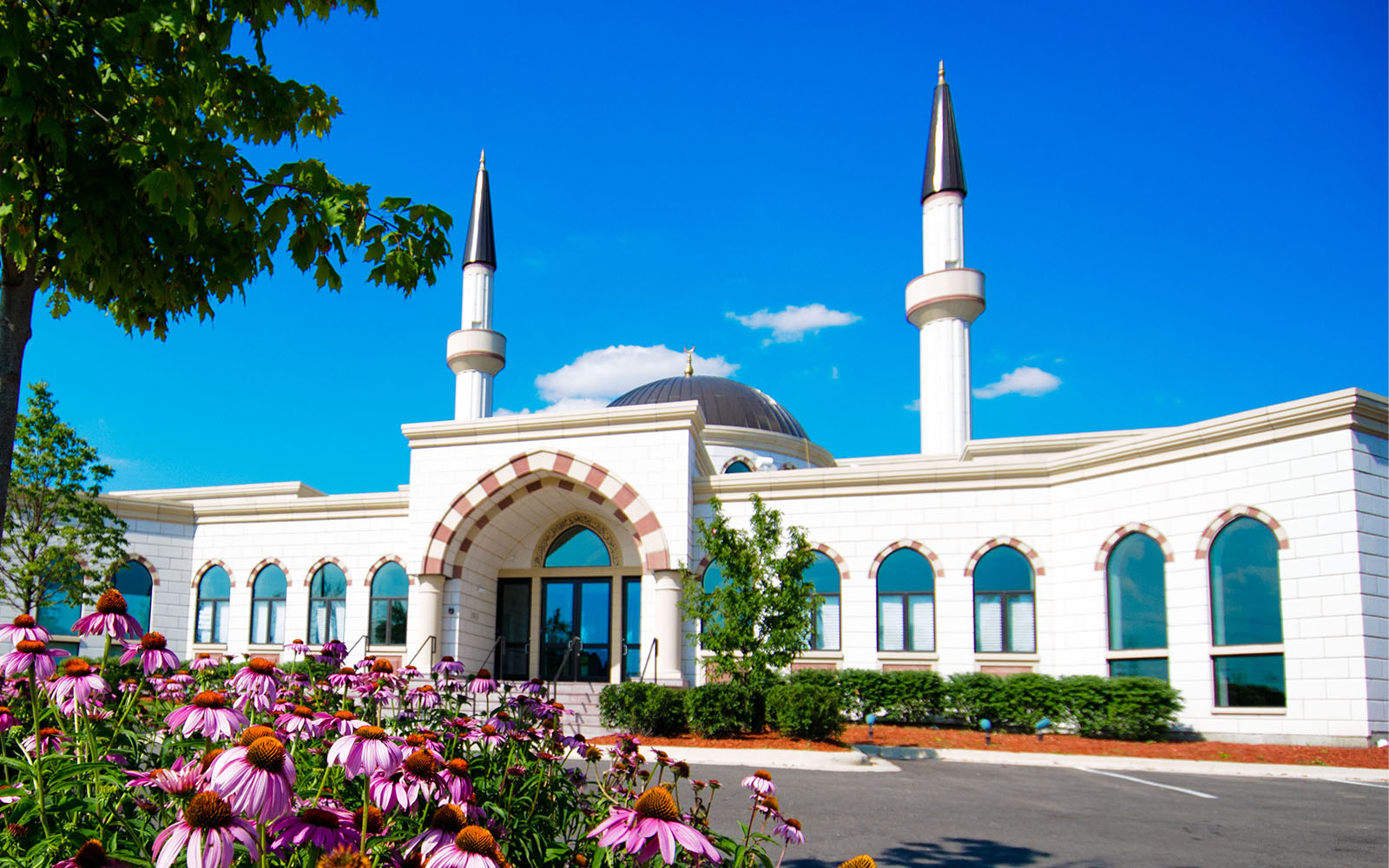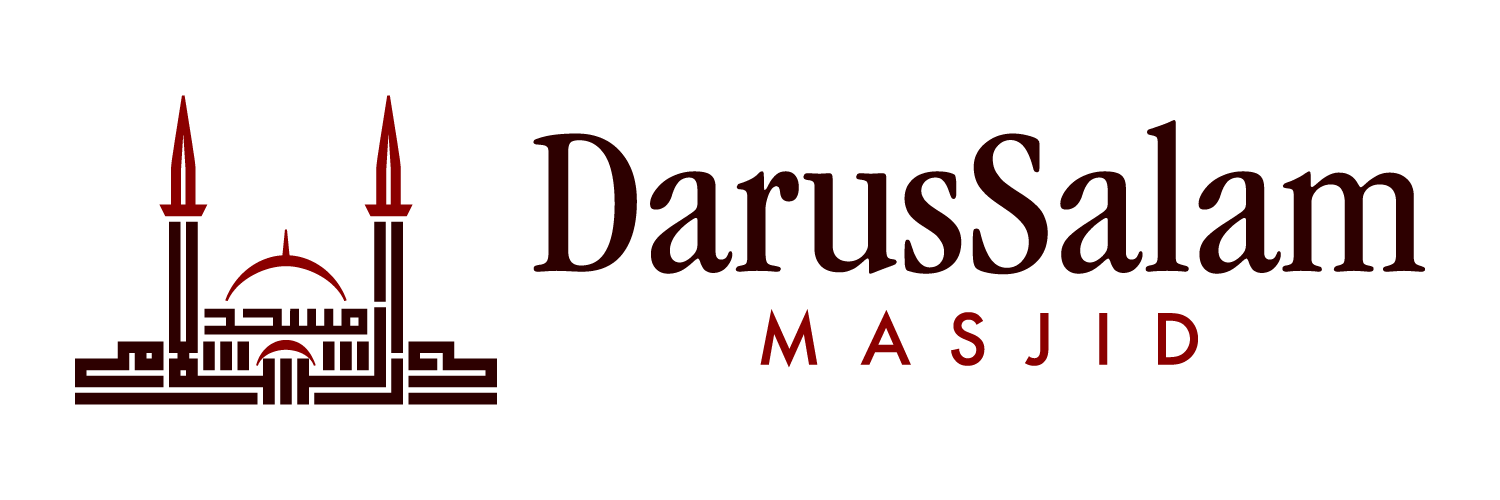The Day of the Sacrifice & Some of Its Virtues: ʿĪd al-Aḍḥā 1441/2020

بسم الله الرحمن الرحيم
The sacrifice was legislated in the second year after our beloved Prophet Muḥammad (upon him be peace) migrated from Makkah to Madīnah. The first act of sacrifice that the Muslims witnessed happened during this time. The Messenger (upon him be peace) came and prayed. Then, he gave a sermon to the believers. And after that, he slaughtered two sheep.
The first that he slaughtered was for him and his noble family. And the second was on behalf of his nation (ar. ummah). Ever since, those who were able to observe this practice have done so. In Islām, the sacrifice began with the Prophet (upon him be peace) in the city of Madīnah and continued to be observed thereafter in every generation until and including today. Through this practice, the Qurʾānic commandment to slaughter is upheld according to how the Messenger (upon him be peace) taught us.
By slaughtering, we remember the bounty that Allāh bestowed on the Prophet Abraham (upon him be peace), as related in the account of him and his son. Rather than sacrificing Ishmael (upon him be peace), Allāh sent a ram to Abraham for the sacrifice. Thereafter, observing a sacrifice was commanded in the Sacred Laws that were sent to the Prophets who came after him. By slaughtering, we maintain a divine command that was prescribed to every nation who came before us.[1] In the Qurʾān, Allāh says:
وَلِكُلِّ أُمَّةٍ جَعَلْنَا مَنْسَكًا لِيَذْكُرُوا اسْمَ اللَّهِ عَلَى مَا رَزَقَهُمْ مِنْ بَهِيمَةِ الْأَنْعَامِ فَإِلَهُكُمْ إِلَهٌ وَاحِدٌ فَلَهُ أَسْلِمُوا وَبَشِّرِ الْمُخْبِتِينَ
“For every community, We appointed a sacrificial rite so that they may mention the name of God over the grazing beasts that they sacrifice from what He provided them. Your God is One God. Submit to Him and give glad tidings to those who humble themselves.”[2]
The word “mansak” means spilling sacrificial blood by slaughtering from the animals that Allāh provided.[3] While praising and glorifying Allāh, engaged in His remembrance, one follows the way of the Messengers, Prophets, and their righteous followers by sacrificing an animal on this day. This verse tells us that the sacrifice is done for Allāh; we worship Him and Him alone.
This is the Prophet’s Sunnah. Praying to Allāh by performing the Eid prayer and submitting to Him by offering the sacrifice is the Prophet’s way. Verily, he (upon him be peace) said:
إِنَّ أَوَّلَ مَا نَبْدَأُ فِي يَوْمِنَا هَذَا أَنْ نُصَلِّيَ ثُمَّ نَرْجِعَ فَنَنْحَرَ فَمَنْ فَعَلَ ذَلِكَ فَقَدْ أَصَابَ سُنَّتَنَا الحديث
“Verily, the first thing we do on this day of ours is pray. Thereafter, we return for the slaughter. Whoever does this, he has adhered to our Sunnah….’”[4]
By following this, one will achieve a great virtue. Through this act, Allāh will pardon one’s sins and His mercy will descend. The Prophet (upon him be peace) said:
يَا فَاطِمَةُ قُوْمِي فَاشْهَدَيِ أُضْحِيَّتَكَ فَإِنَّهُ يُغْفَرُ لَكِ بِكُلِّ قَطْرَةٍ مِنْ دَمِهَا كُلُّ ذَنْبٍ عَمِلْتِهِ وَقُولِي إِنَّ صَلَاتِي وَنُسُكِي وَمَحْيَايَ وَمَمَاتِي لِلَّهِ رَبِّ الْعَالَمِينَ لَا شَرِيكَ لَهُ وَبِذَلِكَ أُمِرْتُ وَأَنَا أَوَّلُ الْمُسْلِمِينَ فَقَالَ عِمْرَانُ يَا رَسُولَ اللَّهِ هَذَا لَكَ وَلِأَهْلِ بَيْتِكَ خَاصَّةً فَأَهْلُ ذَلِكَ أَنْتُمْ أَمْ لِلْمُسْلِمِينَ عَامَّةً قَالَ بَلْ لِلْمُسْلِمِينَ عَامَّةً
“O Fāṭimah! Observe your sacrifice! Verily, with each drop of the sacrificial animal’s blood you will be granted forgiveness for the sins that you committed. Do this whilst proclaiming: ‘Verily my prayer, my sacrifice, my life, and my death are for Allāh the Lord of the Worlds who has no partner. With this I have been commanded and I am one of the Muslims.’ ʿImrān inquired: ‘O Allāh’s Messenger! Is this something specific to the people of your house or does it apply to all the Muslims?’ The Messenger replied: ‘Indeed, this applies to all the Muslims.’”[5]
The Day of the Sacrifice is a day of worshipful elation. The Prophet (upon him be peace) said:
يَوْمُ عَرَفَةَ وَيَوْمُ النَّحْرِ وَثَلَاثَةُ أَيَّامِ التَّشْرِيقِ عِيدُ أَهْلِ الْإِسْلَامِ هُنَّ أَيَّامُ أَكْلٍ وَشُرْبٍ
“They Day of ʿArafah, the Day of the Sacrifice, and the Days of Tashrīq are Eid for the Muslims; these are days of eating and drinking.”[6]
Thus, this Day of Eid is one of worship and celebration. This is a day of joy and happiness for the believers. On this day, they have upheld their Lord’s commandments. And thereby, the believers have obtained His pleasure. They know that Allāh will shower His infinite mercy and boundless forgiveness upon them.
This is one of the greatest days of the year. The Prophet (upon him be peace) said:
أعْظمُ الأَيَّامِ عِندَ اللَّهِ يَوْمُ النَّحْرِ ثمَّ يَوْمُ القَرِّ
“From the greatest of days, according to Allāh, is the Day of the Sacrifice and the day after it.”[7]
Mullā ʿAlī al-Qārī mentioned that what is meant here is that the days of ʿĪd al-Aḍḥā are some of the greatest days of the year. And here, the first of these days is intended, which is ʿĪd al-Aḍḥā. This is the major Eid and the most significant of the two as most of the pilgrimage’s major rites take place at this time.[8]
This day has been referred to as “Yawm al-Ḥajj al-Akbar” because the major rites of the pilgrimage take place on this day. On this day, one pelts, sacrifices, shaves, and circumambulates the House.[9] And as this is happening, Muslims around the world worship, glorify, and praise their Lord. This is a day in which Allāh is remembered. It is a day in which His servants bow and prostrate to Him in submission and then spill sacrificial blood in obedience to His command.
Groups and caravans of dutiful believers from around the world gather. Adorned in pilgrim garb, they reverently enter the lands in which Allāh revealed the Qurʾān unto the Prophet Muḥammad (upon him be peace). Nowadays, during most years, the holiest place on the face of the earth is populated by two million worshipers who enter praising their Lord and proclaiming their servitude to Him.
Here, they observe the pilgrimage’s rites and rituals. Anticipating their Creator’s forgiveness, pardon, and mercy, they earnestly beseech Him for all that a man prays for. They extol Him in praise and testify to His Oneness and Lordship. Each step in this sacred journey is taken in the footsteps of those who came before from the Prophets, Messengers, and all our pious predecessors. Each rite observed is worship. Each rite observed is one submitting to his Lord and Creator according to how the Prophet (upon him be peace) demonstrated and taught. This is a major event.
The Day of ʿArafah comes, then the Day of the Sacrifice, and then the Days of Tashrīq. When these days arrive, Allāh is worshiped, praised, and thanked. We festively celebrate this occasion while reverently submitting to Him. The pilgrimage and the rites that take place on this day are for Him. Our prayers and the blood that flows from the necks of the sacrificial sheep, cows, and camels are for Him. Celebrating ʿĪd al-Aḍḥā is for Him.
‘Verily my prayer, my sacrifice, my life, and my death are for Allāh the Lord of the Worlds who has no partner. With this I have been commanded and I am one of the Muslims.’
[1] Sharīʿat Allāh al-Khālidah, 54.
[2] Q, 22:34.
[3] Madārik al-Tanzīl Tafsīr al-Nasafī, 2:440.
[4] Ṣaḥīḥ al-Bukhārī, 2:19.
[5] al-Muʿjam al-Wasīṭ, 3:69. In his takhrīj on Iḥyāʾ, Ḥāfiẓ ʿIrāqī mentioned that this narration is not strong. Ibn Abī Ḥātim also mentioned this. (ʿIlal, 4:495) It is cited here min bāb faḍāʾil al-aʿmāl. Furthermore, citing it while discussing the virtues of Yawm al-Naḥr has a precedent. Imām Bayhaqī related it under this discussion. (Faḍāʾil al-Awqāt, 108)
[6] Sunan al-Nasāʾī al-Kabīr, 3:228.
[7] Sunan Abī Dāwūd, 2:148.
[8] Mirqāt al-Mafātīḥ, 5:1825.
[9] Faḍāʾil al-Awqāt, 110.
Tag:Dhu al-Hijjah


